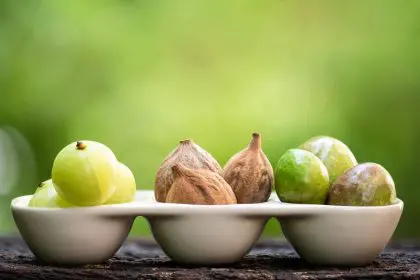Memory concerns affect millions of families worldwide, and the search for natural ways to support brain health continues to grow. Vitamin C, long celebrated for its immune-boosting properties, has emerged as a nutrient of interest in the conversation about cognitive wellness and dementia prevention.
The connection between vitamin C and brain health stems from its role as a potent antioxidant. The brain consumes about 20% of the body’s total energy and generates significant oxidative stress in the process. This cellular damage accumulates over time and may contribute to cognitive decline.
How vitamin C supports brain function
Vitamin C crosses the blood-brain barrier and concentrates in brain tissue at levels 10 times higher than in blood plasma. This concentration suggests the brain has a particular need for this nutrient. The vitamin serves multiple functions in neural tissue, including supporting neurotransmitter production and protecting brain cells from oxidative damage.
The nutrient also plays a crucial role in collagen synthesis, which maintains the integrity of blood vessels supplying the brain. Healthy circulation ensures adequate oxygen and nutrient delivery to brain cells, supporting optimal cognitive function.
Additionally, vitamin C helps regenerate other antioxidants like vitamin E, creating a network of protection against cellular damage. This collaborative effect may be particularly important in brain tissue, where oxidative stress can accumulate over decades.
Top vitamin C sources for brain health
1. Acerola cherries
These small red fruits contain the highest concentration of vitamin C found in nature, with up to 1,700 milligrams per 100 grams. Acerola cherries also provide bioflavonoids that work synergistically with vitamin C to enhance absorption and effectiveness.
Fresh acerola cherries can be difficult to find, but freeze-dried powder and supplements are widely available. The powder can be mixed into smoothies or yogurt for an easy addition to daily nutrition.
2. Camu camu
This Amazonian superfruit delivers approximately 2,000 milligrams of vitamin C per 100 grams, making it one of the most concentrated sources available. Camu camu also contains amino acids and minerals that support overall brain health.
The fruit is typically available as a powder or in supplement form. Its tart flavor pairs well with sweet fruits in smoothie blends, making it easy to incorporate into daily routines.
3. Kakadu plum
Native to Australia, kakadu plum contains up to 3,000 milligrams of vitamin C per 100 grams. This indigenous fruit also provides folate and other B vitamins that support cognitive function and may help reduce homocysteine levels associated with brain aging.
Kakadu plum is available as a freeze-dried powder and in supplement capsules. The powder has a mild, slightly tart taste that works well in breakfast cereals or protein shakes.
4. Red bell peppers
Among common grocery store items, red bell peppers rank as one of the highest vitamin C sources, containing about 190 milligrams per cup. They also provide beta-carotene and other carotenoids that support eye health and may benefit cognitive function.
Red peppers are versatile and can be eaten raw, roasted, or added to various dishes. Their sweet flavor and crunchy texture make them appealing to many people who struggle to eat enough vegetables.
5. Kiwi fruit
One medium kiwi provides about 93 milligrams of vitamin C, along with fiber, potassium, and vitamin K. The fruit also contains unique enzymes that may aid digestion and nutrient absorption.
Kiwis are available year-round in most grocery stores and can be eaten fresh or added to fruit salads and smoothies. The skin is edible and provides additional fiber and nutrients.
Absorption and bioavailability considerations
The body absorbs vitamin C most effectively when consumed in smaller, frequent doses rather than large single amounts. Taking more than 200 milligrams at once results in decreased absorption efficiency, with excess amounts being eliminated through urine.
Natural food sources often provide superior absorption compared to synthetic supplements due to the presence of cofactors like bioflavonoids and other phytonutrients. These compounds work together to enhance vitamin C utilization in the body.
Timing also matters for optimal absorption. Taking vitamin C with meals can reduce stomach irritation and may improve uptake, especially when consumed with foods containing healthy fats that support the absorption of fat-soluble vitamins that work synergistically with vitamin C.
Dosage recommendations for cognitive support
The recommended daily allowance for vitamin C is 90 milligrams for men and 75 milligrams for women, but many nutrition experts suggest higher amounts for optimal health benefits. For cognitive support, doses ranging from 200 to 1,000 milligrams daily are commonly discussed in nutritional literature.
Individual needs may vary based on factors such as age, stress levels, smoking status, and overall health condition. Smokers require an additional 35 milligrams daily due to increased oxidative stress from tobacco use.
Starting with moderate doses and gradually increasing allows the body to adapt and minimizes the risk of digestive upset. Dividing the daily amount into two or three smaller doses throughout the day optimizes absorption and maintains steady blood levels.
Combining vitamin C with other brain-supporting nutrients
Vitamin C works best as part of a comprehensive approach to brain health. Vitamin E provides complementary antioxidant protection and helps regenerate vitamin C in tissues. The two vitamins together may offer greater protection than either alone.
B vitamins, particularly B6, B12, and folate, support neurotransmitter production and help maintain healthy homocysteine levels. These nutrients work alongside vitamin C to support overall cognitive function and may have additive benefits.
Omega-3 fatty acids from fish oil or algae sources provide essential building blocks for brain cell membranes and support anti-inflammatory processes in the brain. Combining omega-3s with antioxidants like vitamin C may enhance the protective effects of both nutrients.
Lifestyle factors that enhance vitamin C benefits
Regular physical exercise increases blood flow to the brain and may enhance the delivery and utilization of vitamin C in neural tissue. Even moderate activity like walking for 30 minutes daily can support cognitive health and complement nutritional interventions.
Adequate sleep allows the brain to clear metabolic waste products and may help preserve antioxidant systems. Poor sleep quality can increase oxidative stress and may counteract some benefits of vitamin C supplementation.
Stress management techniques such as meditation, deep breathing, or yoga can help reduce cortisol levels and oxidative stress. High stress levels deplete vitamin C stores more rapidly, making stress reduction an important complement to nutritional support.
Making informed decisions about vitamin C
While research into vitamin C and cognitive health continues to evolve, incorporating high-quality sources into a balanced diet appears to offer multiple health benefits with minimal risk. Natural food sources provide not only vitamin C but also other nutrients that support overall brain health.
Individual responses to vitamin C supplementation can vary, and what works best may depend on personal health factors and dietary patterns. Consulting with healthcare providers can help determine the most appropriate approach for individual circumstances.
The key lies in consistency and quality rather than pursuing extremely high doses. A steady supply of vitamin C from varied sources, combined with other healthy lifestyle practices, may offer the best support for long-term cognitive wellness.

















